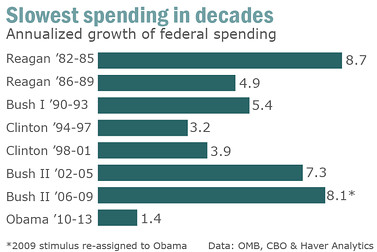- Joined
- Jan 26, 2012
- Messages
- 6,232
- Reaction score
- 7,574
Imagine how much better off you would be if the bureaucracy weren't so convoluted and wasteful. The same services could be rendered at a much lighter tax burden for all. At some point in my life, I have been in every bracket up to and including the 28% and you will never find me advocating for tax hikes, even for those who earn >$1M. It will never be right in my eyes. That being said, I am all about reducing waste. It is almost impossible to be fired from government work, no matter how awful you are at your job. Reduce friction on the system and it will operate much more efficiently. Or just let us keep digging a hole and join Greece at the bottom.
Everyone is for reducing waste. It's almost meaningless to say so. Government bureaucracy is wasteful. It always has been and always will be. We need to try, hard, to reduce that waste and streamline things but you can't just say "reduce waste" like it's some solution to budgetary problems.

